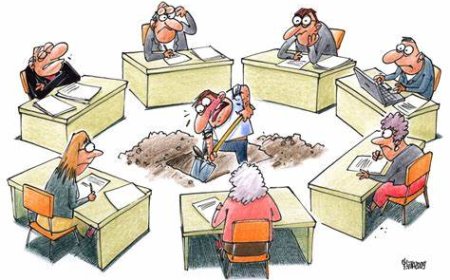Freedom in Focus: The Libertarian Party of India Podcast - Episode 2
Join us on "Freedom in Focus," the official podcast of the Libertarian Party of India, as we explore governance, individual freedom, and solutions from a libertarian perspective. In each episode, we delve into key questions about the future of India and how minimal government intervention can empower individuals and entrepreneurs.

Introduction:
Welcome to today’s episode of Libertarian Voices, where we explore the guiding principles of the Libertarian Party and how they would reshape governance in areas like national defense, environmental protection, intellectual property, and the overall role of government. In this episode, we sit down with a thought leader from the party to discuss key issues that challenge traditional models of governance and offer a fresh, freedom-focused perspective.
Q1: National Defense – How Would a Libertarian Government Organize Its Defense Forces?
Host:
The first question on many minds is about national defense. In a world where security is often a major concern, how would a country governed by Libertarian principles organize its defense forces?
Guest:
Great question. We believe that defense should be decentralized, with minimal government involvement. Drawing inspiration from the Swiss model, the idea is that local militias would take on the responsibility of defense rather than a centralized military force. The government’s role should be limited to ensuring voluntary cooperation and coordination between local groups, rather than commanding a massive military machine.
Q2: Foreign Policy – What’s the Libertarian Stance on Foreign Relations and Trade?
Host:
When it comes to foreign relations, where does the Libertarian Party stand? What is your approach to handling international relations and trade?
Guest:
Our approach is pragmatic. We don’t advocate for radical changes but rather focus on maintaining peaceful relationships with other countries. We believe in promoting trade, free exchange, and diplomatic engagement without interfering in the internal matters of other nations. Libertarians value voluntary cooperation and non-aggression, meaning we won’t start unnecessary wars but will protect national interests where needed.
Q3: Environmental Protection – How Would Libertarians Handle Ecological Issues?
Host:
Now, let’s talk about the environment. How would a Libertarian society approach the pressing issues of pollution, climate change, and ecological conservation?
Guest:
The key here is private property rights. Environmental issues should be addressed through the lens of individuals taking responsibility for their own actions and their impact on the environment. If someone pollutes and harms another’s property, they should be held accountable. We believe market-driven solutions and innovation would push businesses to adopt environmentally-friendly practices, making government regulations unnecessary.
Q4: Intellectual Property – Does Libertarianism Support IP Protection?
Host:
What about intellectual property? Many people might think Libertarians oppose IP protections. Can you explain how Libertarian principles align with intellectual property rights?
Guest:
Libertarians believe in protecting the fruits of one’s labor. Intellectual property rights are no different. We support the protection of ideas and inventions, but the challenge is ensuring these protections are limited and don’t stifle innovation. A balance must be struck to allow creators to benefit from their work without monopolizing ideas that could benefit society as a whole. It’s about encouraging creativity while preventing overreach.
Q5: Role of Government – What Do Libertarians Believe is the Appropriate Role of Government in Society?
Host:
Finally, a big question: What is the Libertarian vision for the role of government? How much should the government be involved in people's daily lives?
Guest:
In a Libertarian society, the government’s role is extremely limited. The primary function of government is to protect individual rights, including life, liberty, and property. Beyond that, government intervention should be minimal, allowing individuals to make their own decisions in their personal and economic lives. We advocate for a society where voluntary interactions and private agreements replace bureaucratic control and regulation.
Conclusion:
Today’s conversation has offered a compelling look into how the Libertarian Party views key issues such as defense, the environment, intellectual property, and the role of government. By emphasizing decentralization, personal responsibility, and limited government, Libertarians propose a system that encourages freedom, innovation, and voluntary cooperation. It’s an intriguing alternative to traditional models of governance, one that prioritizes individual liberty above all.
Thank you for tuning in to this episode. Join us next time as we continue to explore the philosophies that challenge the status quo and offer a new perspective on governance in the modern world.
What's Your Reaction?




















































